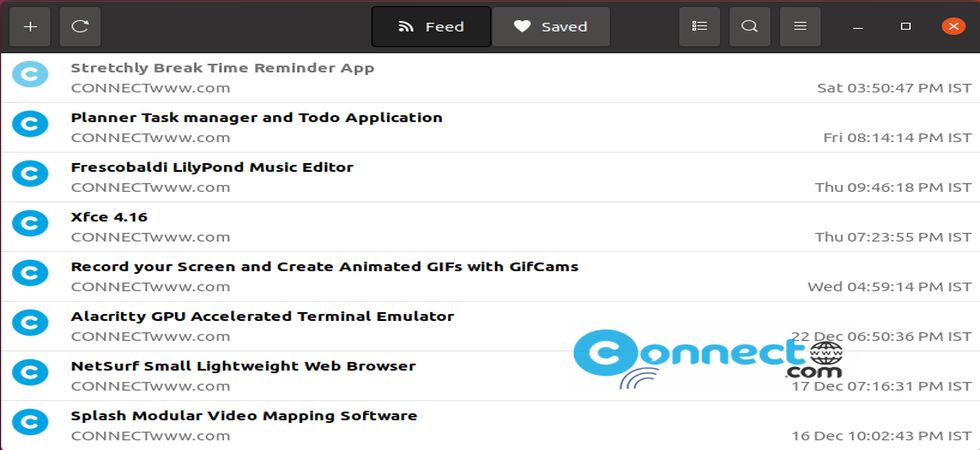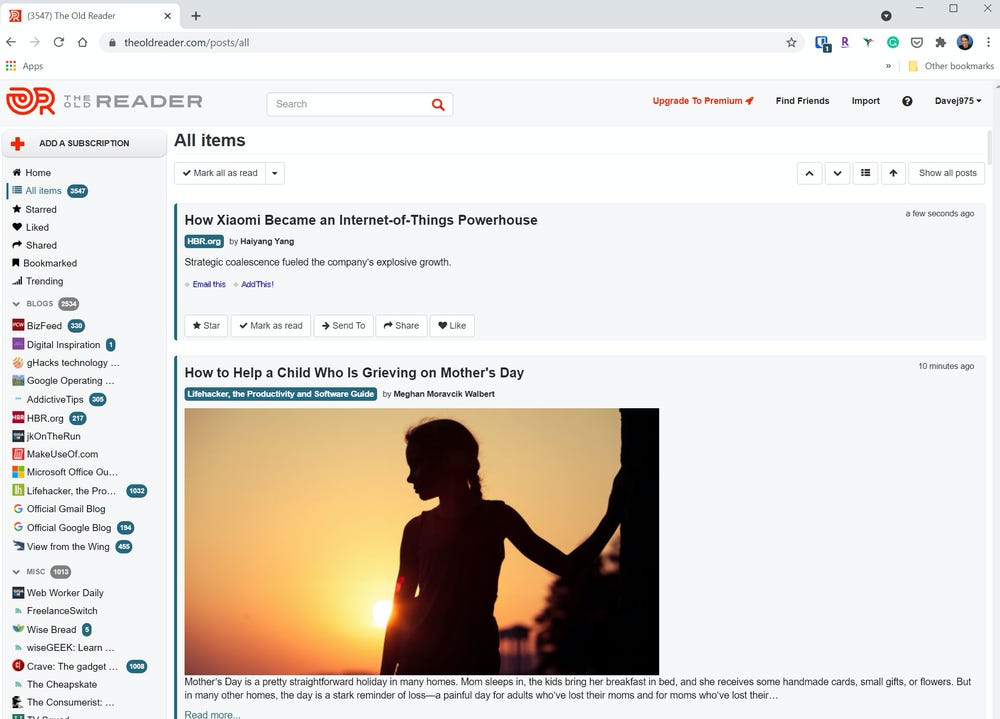
Email is a vital part of any marketing campaign, and Mailchimp automation can make your life easier. Sending automated email can save you a lot of time, reduce your workload and keep you consistent in your message.
There are a lot of different ways you can automate your email campaigns with Mailchimp. You can either set up single emails that take care of repetitive work or drip campaigns, which deliver content to your subscriber over a certain period of time.
Mailchimp's automation builder makes it easy to send automated emails. Once you decide how you will use them, you can start in just a few minutes. Choose an automation. Add your content. Set up your workflow criteria. Your email will be sent to the audience you have selected.

Create an Email Series or a Single E-mail
Click on the dropdown menu at the top-right corner of the account dashboard to start an automation. Select the type that you want to create. You can either choose from the pre-built automatons which include common tasks such as welcome messages, abandoned cart emails and more or create your very own by using the Automation Builder.
Once you've chosen an automation, click on the Template step and then Design to start designing. In this step, you can add images or other design elements such as textboxes. After your design is complete, you can review your workflow settings to make any necessary changes.
Send a Welcome Automation To Your Newest Subscribers
Consider creating an automated welcome automation for your new subscribers. It will get your customers started on a path to a long-lasting relationship and increase retention.
Get creative with your emails to welcome users. To encourage users to spread the word, you can include a promotion code in an email welcome.

You can also set up a journey automation that will send customers down the right path as they interact with your business. Choose from more than 20 starting points or create your own with the Customer Journey feature.
Mailchimp’s Customer Journey feature allows you create automated messages that help your audience achieve their goals. The Customer Journey tool can be used to deliver product updates, industry trends or keep your audience aware of your brand.
Mailchimp automation can help you get a better return on investment
You'll have access to an array of features that will improve the effectiveness of your marketing. You can schedule social updates, send retargeted adverts, or schedule transactional emails, blog post newsletters and postcards.
FAQ
Can you use SQL to automate?
SQL is the key for automating business processes regardless of their size. It eliminates the need to manually enter data or search in tables.
With SQL, you can quickly and easily iterate through thousands or hundreds of records within a database table using a single command. Also, you can quickly transform data into visually appealing visualizations that are easy to understand.
SQL allows you to unlock crucial insights about customers, products, and activities by running powerful queries over structured datasets. These insights can help you increase accuracy and decrease time spent on tedious tasks.
Automated reports can also be set up and scheduled to automatically refresh, so everyone is on the same page. Saving valuable time that could otherwise be spent away from the office. SQL is a powerful tool that can be used to track processes across departments and help teams communicate important findings.
SQL is also great for automating tasks that require complex calculations or data manipulation. You can use SQL to create automated processes that automatically generate reports, send out notifications, or even trigger other processes based on certain conditions. This helps streamline workflows and ensures that everyone is kept up-to-date with the latest information.
SQL can also be used to automate marketing activities like email campaigns and website analytics. SQL can be used in order to automate targeted campaigns or monitor the performance of websites in real time.
What are four key characteristics of marketing automation software
Marketing automation software promises digital marketing tools that simplify and improve digital marketing. It also provides meaningful insights based around your business goals. The best marketing automation tools can bring about tangible improvements in efficiency across multiple channels, and help maximize the effectiveness of your campaigns. Here are four features that are essential:
-
Automated campaigns: Automation makes it easier and more efficient to manage complex campaigns by leveraging automated tasks which trigger based user behavior or other event.
-
Analytics & Insights - Use advanced analytics to gain insight about customer behavior and optimize future campaigns.
-
Customer Segmentation: Leverage customer segmentation to ensure each campaign is targeted and personalized for the highest chance of success.
-
Messaging: Automatically send messages to customers that are specific for them. This will increase both customer satisfaction and response rates.
Businesses can save money and time while creating personalized customer experiences by utilizing the right marketing software. Automation software allows you to segment customers by their behavior and preferences. It also tracks customer activity and engagement so that automated messages can be sent to each segment. Marketing automation is a vital tool that businesses can use to succeed in today's competitive marketplace.
Which marketing automation software is best?
It can be hard to find the right marketing automation for your company. There are so many options that it can be difficult choosing the best.
You need something to save you money, time, and hassle. It should generate leads and improve customer retention.
It must be reliable, easy to use, and provide excellent customer support in the event of any problems. It needs the capacity to carry out activities such as email campaigns, segmentation of customers by interest or behavior, multi-channel nurturing of leads, insightful reporting, and intelligent analytics to understand customer behavior.
But, it is essential that it can give you visibility over customer journeys. It can also generate actionable insights about what will trigger customers to purchase so you can build an effective strategy that meets those needs.
If you are looking for a marketing automation tool, make sure you look at user-friendly features and data-driven progress tracking throughout the customer lifecycle. Also, consider robust personalization capabilities.
What's an example of marketing automation, you ask?
Marketing automation is the technology that allows businesses to automate manual marketing processes like responding to customer emails, collecting data from your website, and managing multiple digital campaigns. It can send automatic emails based a customer's behavior, segment customers into different groups, or create new contacts when someone subscribes to a newsletter. Marketing automation makes it easier to focus on what is important, which is reaching out to customers. Automation not only makes it easier to manage multiple campaigns at the same time, but it also increases efficiency by automating repetitive tasks.
An example of marketing automation is the use an automated email campaign for nurturing leads. This campaign involves sending several emails to prospects over a time period. These emails can be customized to the individual and may include product information, case studies and discounts. Automated email campaigns allow you to track customer behavior and tailor your messages accordingly. They can help you reach more customers in a short time.
Another example of marketing automation is using social media automation. This involves scheduling posts and content across multiple social networks to reach a larger audience. Hootsuite and Buffer both offer automation tools to help you manage your accounts, schedule posts beforehand, and track your campaigns' performance. Automation in social media can help you save time, allowing to publish content at the best times for maximum engagement. It makes it easier to reach more people with less clicks.
Finally, marketing automation can also be used to create personalized customer experiences. HubSpot and Pardot enable businesses to segment their customers based on their preferences and behavior. This allows you to customize your messages and content according to each group, creating a more personal experience for each customer. Automation allows you monitor customer activity to help you better understand their preferences.
Overall, marketing automation is a powerful tool that can help businesses save time and increase efficiency. It can be used to automate manual tasks, nurture leads, manage social media accounts, and create personalized customer experiences.
Marketing automation can give businesses a competitive edge by giving them a competitive advantage. Automation can streamline processes, cut costs, and improve efficiency. It helps businesses reach more customers faster by automating repetitive tasks as well as cross-posting content across multiple social media platforms. By segmenting customers into different groups, and tailoring messages accordingly, marketing automation allows businesses to create customized customer experiences. Marketing automation can be a powerful tool to help businesses save time, increase efficiency, and maximize profits.
Statistics
- It can help reduce administrative overheads to savings of 3.4% on average, with most companies saving between 1.5% and 5.2% (Lido). (marketo.com)
- While they're doing that, their competition is figuring out how to get more out of the 99.99% of the market that's still out there. (hubspot.com)
- Marketing automation is one of the fastest-growing technologies out there, according to Forrester's Marketing Automation Technology Forecast, 2017 to 2023. (marketo.com)
- The stats speak for themselves: Marketing automation technology is expected to show a 14% compounded annual growth rate (CAGR) over the next five years. (marketo.com)
- Automator can probably replace 15% or more of your existing plugins. (automatorplugin.com)
External Links
How To
How can I select the best content marketing automation platform?
The key to success is choosing the right content-marketing automation platform.
You'll want to look for a platform that facilitates direct communication with your customers, is easy to use, and integrates easily with your existing brand workflow. It should also be able to automate tasks that usually take a lot of effort and create marketing automation campaigns.
Consider your company's requirements when choosing a content marketing platform. Look for platforms that have reporting and templates capabilities. Also, consider social media integrations. It is also important to verify that they offer lead-capture capabilities. This will enable you to decide which leads are worth further investigation and which should be discarded.
Pay close attention when choosing a platform. Make sure it has clean navigation so users can find what they are looking for quickly and easily. It should also be simple enough that people don't have to know any technical terms in order to use it. Securely storing data collected from customers and prospects is essential. Make sure that the platform meets all requirements.
You also need to know how frequently the chosen software updates or adds new features. This can significantly improve any content marketing platform's performance over time. Read customer reviews before you make a final decision. It is possible to get real user feedback that can help you find the right product.